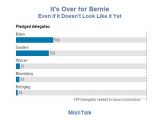Super Tuesday Was Queer as Hell
March 4, 2020The 2020 election is shaping up to be a major year for LGBTQ women in politics.
Many Super Tuesday races are still being called, but so far, queer and trans women scored an estimated 30 wins. These included Texas’ Gina Ortiz Jones, who is running for the U.S. House of Representatives for the second time after coming up short by just 926 votes in 2018, and Susan Eggman, who is campaigning for reelection to the California General Assembly. Eggman bested four challengers to eke out a three-point win in California State Senate District 5, while Jones won by a decisive 55 percent margin.
"For us, the results show that outside big-money interests can’t come into a community and define a public servant who has done the work of the community for a decade,” Eggman told VICE in an email.
The political action group Victory Fund estimates that at least 26 queer women were running for their respective state legislatures—candidates like Eliz Markovitz in the Texas House of Representatives and Tippi McCullough in the Arkansas House—on Tuesday alone. Of those, 20 won, two are too close to call and one is headed to a runoff. Three lost. Because there are just 78 out women currently seated in state legislatures, repeating these victories in November would have a tremendous impact on LGBTQ political representation across the country.
In all, more than 300 LGBTQ women will compete for a place at the table in the 2020 primaries by running for office at the national, state, and local levels.
Lisa Turner, political director of the LGBTQ political action group LPAC, said these races are critical to ensuring politics is no longer “comprised predominantly of straight white men.” She pointed to a 2018 survey from the political action group Victory Fund showing that the U.S. would need to elect 50 times more LGBTQ people to office to match the size of the country’s queer and trans community.
“We know that the government delivers better outcomes for everyone when it is more representative of the people it is serving, but women and LGBTQ people—and the perspectives they bring about the issues that are important for their communities—continue to be vastly underrepresented,” Turner told VICE.
LGBTQ candidates have made significant strides in recent years following what many observers have termed the “rainbow wave” in U.S. politics. The Victory Fund estimated that 244 queer and trans candidates were elected at the federal, statewide, and local level in 2018. A year later, more than 100 additional LGBTQ representatives joined them by winning their respective races.
Queer women running for office have a steep climb
Georgette Gomez is competing for a seat in the U.S. House of Representatives in 2020. Currently, there are just four LGBTQ women seated in all of Congress: Tammy Baldwin and Kyrsten Sinema in the Senate and Angie Craig and Sharice Davids in the House. Davids is the only member of that group who is not white, while just two LGBTQ women of color have ever served as federal lawmakers.
Gomez, who is currently the president of San Diego City Council, made sure to repeat this statistic twice, just to highlight the gravity of it. “I would be the third,” she told VICE. “That’s where we are at in 2020. You would think we would have more people that are representing our community, but the fact of the matter is that we still have a lot of work to do.” While recent 2020 dropout Pete Buttigieg made national news by becoming the first gay Democrat to contend for president, Turner said that women “run and win without fanfare every cycle.”
“In the United States, women are regularly overlooked,” she said. “This is just as much the case in the LGBTQ community as it is in society overall.”
The lack of attention paid to LGBTQ women on the campaign trail sometimes translates to their fundraising totals. In a six-way race for California’s 53rd Congressional District, Gomez was outraised by former Hillary Clinton adviser Sara Jacobs by a 3-to-1 margin. Jacobs fared even better against a second LGBTQ challenger, military veteran Janessa Goldbeck, massively outraising her almost 10 to 1. Gomez came in second on Super Tuesday, while Goldbeck placed third. But since California uses a top-two primary system, Gomez will get another shot against Jacobs—who she will now face off against in the November general election.
Tracy Mitrano is currently facing some of the same issues in New York’s 23rd, a non-Super Tuesday state that holds its primary on June 23. The Republican incumbent, U.S. House Rep. Tom Reed, has raked in $1.7 million in the 2020 cycle, according to the campaign finance website Open Secrets. Mitrano has just under $500,000.
But things are looking way better than even the recent past
Despite challenges in visibility, Mitrano maintained that things have drastically improved for LGBTQ women in politics in recent years. Whereas the fact that she has “dated both men and women was a nonstarter” when she first began exploring a future in politics three decades ago, Mitrano said that now her personal life “hardly ever comes up.” If elected, she would be the third bisexual woman ever elected to Congress, and the small handful of individuals who have had a problem with that “would not vote for [her] for many other reasons,” she added.
“I do not know anyone who has said, ‘On that issue alone, I will not vote for you,’” said Mitrano, who is in a long-term relationship with a woman, told VICE. “People ask us about our families, our children, and our holidays, just as they would anyone else.”
Even more women candidates are likely to declare over the spring and summer, further boosting the numbers of LGBTQ women running in 2020. To date, Victory Fund has endorsed more than 60 female candidates, a number that includes Delaware’s Sarah McBride and Kansas’ Stephanie Byers, who are hoping to become the first out trans lawmakers in the history of their respective states. Delaware holds its primary on September 15, while Kansas’ takes place May 2.
Pat Hackett believes these women have the potential to make a major difference in their communities by “humanizing our politics.” Hackett is running for Congress in Indiana’s 2nd district, which holds its primary on May 5, but she’s worked as a trial attorney for nearly three decades. During that time, Hackett said she has “come to appreciate the importance of how real lives shape the law.”
“We have marriage equality because of actual persons in relationships pursuing marriage,” she told VICE. “It was the court applying the law to actual peoples’ lives.”
Hackett said the same is true of the Equality Act, a nationwide nondiscrimination bill that has inched closer to passage as Congress slowly becomes browner, queerer, and less male. The legislation, which would ban discrimination on the basis of sexual orientation and gender identity in areas like housing and employment, passed the House for the first time in 2019 but remains held up in the GOP-controlled Senate. Another rainbow wave in 2020 will only help America take another step toward full equality.
“There's no doubt that people's minds and hearts are changed when they are dealing with real people, especially if those people are their children, their siblings, or people that they have regard for in their communities,” Hackett said. “That’s the organic nature of human relationships—and people’s capacity to develop and change, hopefully for the good.”


